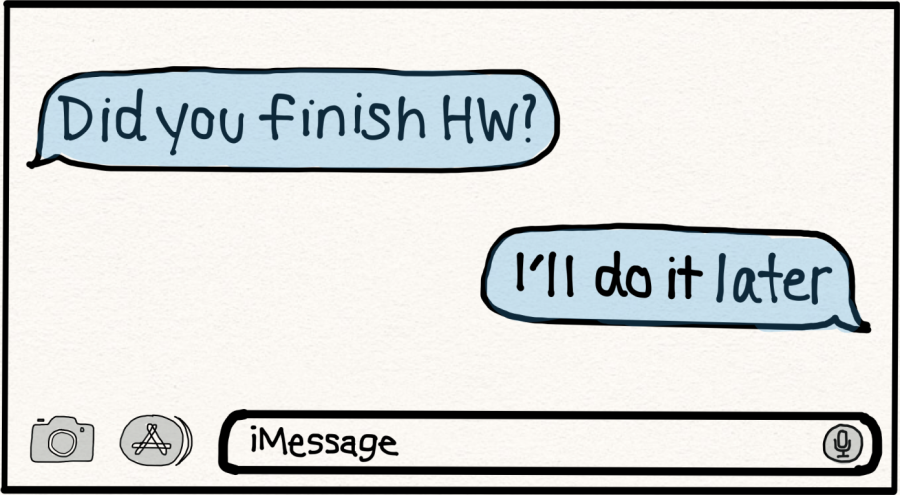Why do we procrastinate?
Students tend to procrastinate because of fear of failure or lack of interest in their activities and/or assignments.
March 16, 2018
Procrastination is the one thing we all do yet hate doing.
We all have had the experience of an assignment or test or whatever breathing down our neck, but instead find our attention on something else, be it a YouTuber or something with sports or which political party will fail most this week in Washington.
We have suffered from and been negatively affected by it, so why do we do it?
Most people would assume it is because they are lazy, stupid, or don’t care. Often this is not true. Even some of the smartest and most successful people procrastinate often. If this is true, why do we procrastinate?
One reason can be fear of failure.
If you try really hard to succeed, only to fail, why would you want to try again? It is easier to not try and fail than to fail while trying.
“The thought of putting in effort but still failing makes you anxious, so you choose avoiding and procrastinating instead. In this way, when your project fails you can rationalize that it wasn’t a true test of your abilities anyway-if only you’d had more time,” stated Director of CBT Services and Training in the Department of Psychiatry at Brigham and Women’s Hospital Dr. Pamela Wiegartz.
To help combat this, try to focus on something easier and more immediately rewarding. Finding ways to reduce stress can help cut hack on procrastination.
Another, very basic, reason can be not knowing what to do.
This can come forth in many ways. You need to write a short story, but you have trouble coming up with ideas.
You could have a math test breathing down your neck but you could not know the way to solve the various problems. In the face of this, it seems better to do something you enjoy than the thing you do not even know what to do about.
This has a very straightforward solution: get help. If you can get help with your problems, then not knowing what to do becomes less of a problem.
One final reason for procrastination that I will talk about today can be lack of interest.
If you hate doing something, then why would you want to do it? After all, no one wants to work on a massive project with headache inducing terminology. There is a good strategy to overcome this.
“One strategy is to divide and conquer. Shift your focus from the ultimate goal to a series of easy to complete, intermediate tasks,” said associate professor emeritus at the UoI-Springfield Dr. Shahram Heshmat. “Another strategy is to form an if-then plan to automate goal striving—e.g., if I turn on the computer, I will first work on my assignment for 45 minutes.”
This can help no only get your work done, but whittle it down so it is closer to completion and therefore less of a pain to deal with.
Procrastination is something we all have to deal with and learn to get around. The biggest first step is to stop what you’re doing right now.
You know you have not done what you are supposed to do tomorrow. Get back to work, just as I will now.
Eventually.








